Advanced electromyography testing that pinpoints exactly what’s causing your unexplained symptoms.
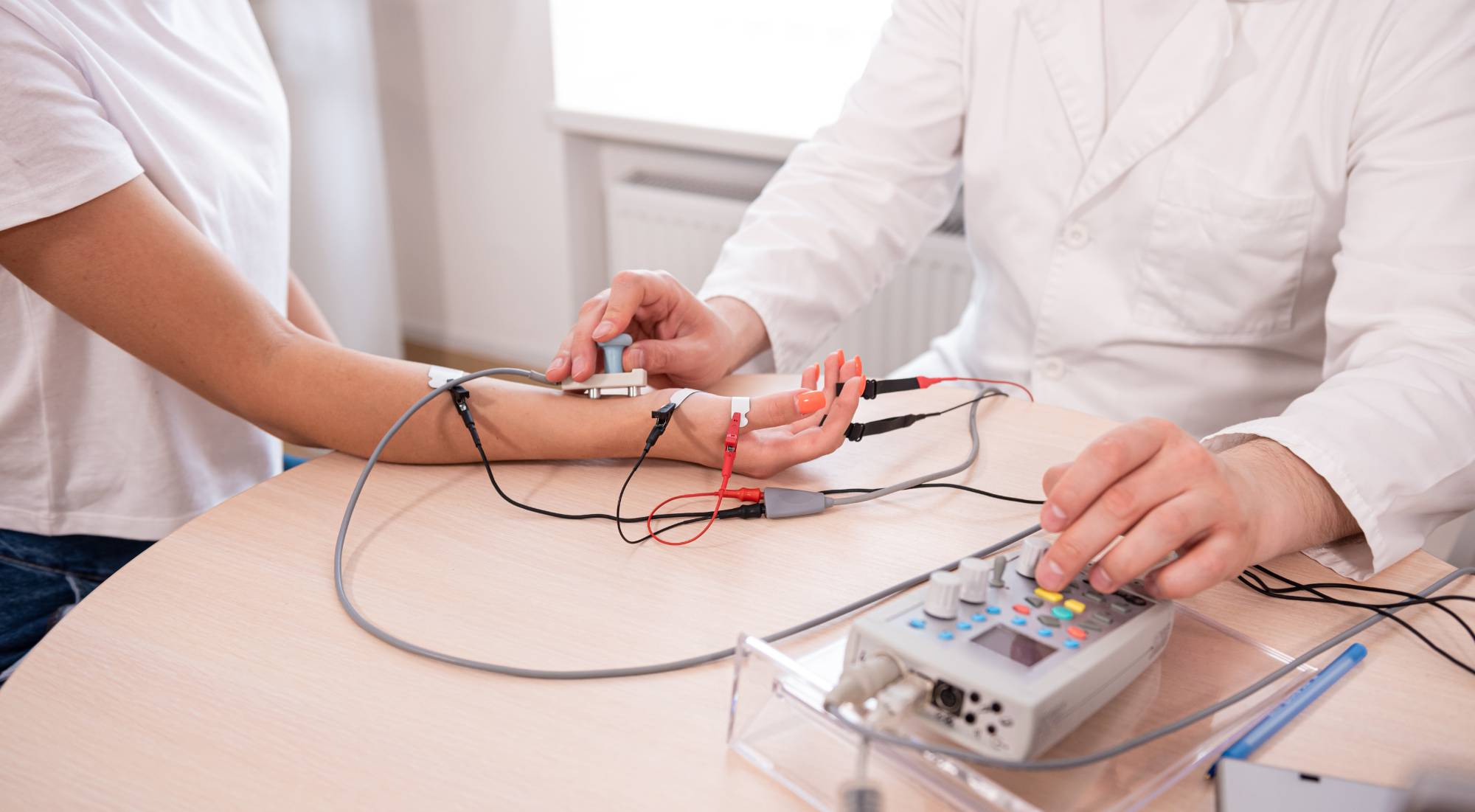
Reviews
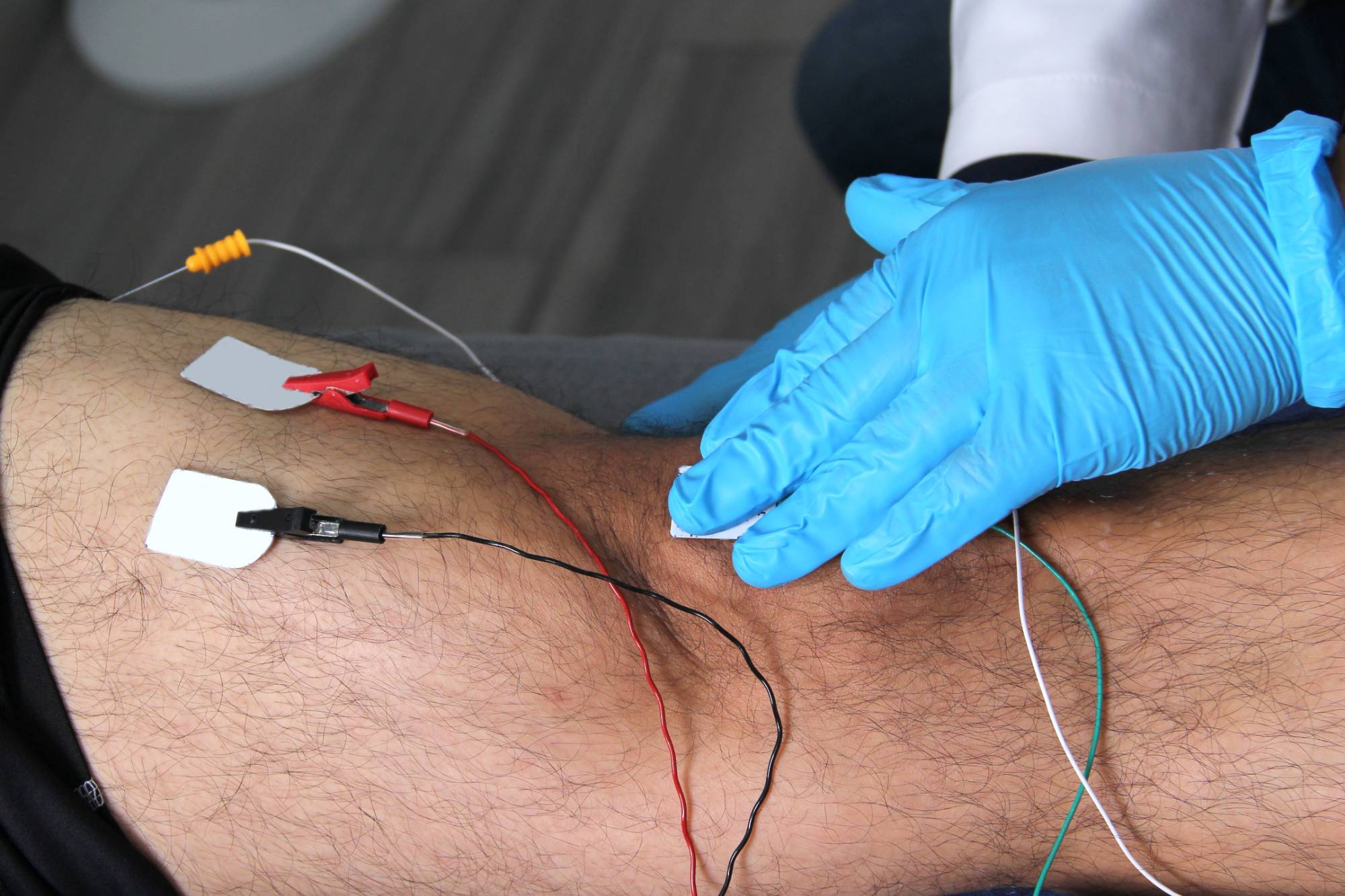
You’ve been dealing with numbness, tingling, or muscle weakness for weeks or months. Maybe your fingers go numb at night, or your leg feels weak when you walk. Your regular doctor isn’t sure what’s causing it, and you’re tired of guessing.
EMG testing gives you concrete answers. This diagnostic procedure measures the electrical activity in your muscles and nerves, showing us exactly where the problem is and how severe it might be.
Instead of wondering if your symptoms are “all in your head” or worrying about worst-case scenarios, you’ll know what you’re dealing with. That clarity changes everything – it means you can stop the guesswork and start an actual treatment plan that addresses the real cause of your discomfort.
We’ve been providing neurological diagnostic services to North Grapeland Heights and surrounding Florida communities for years. Our team specializes in electromyography testing and nerve conduction studies, with board-certified neurologists who understand exactly what to look for.
You’re not just getting a test – you’re working with specialists who’ve seen thousands of cases like yours. We know how to interpret results accurately and explain what those results mean for your specific situation.
We accept most major insurance plans and maintain relationships with referring physicians throughout the area, ensuring your care stays coordinated from diagnosis through treatment.
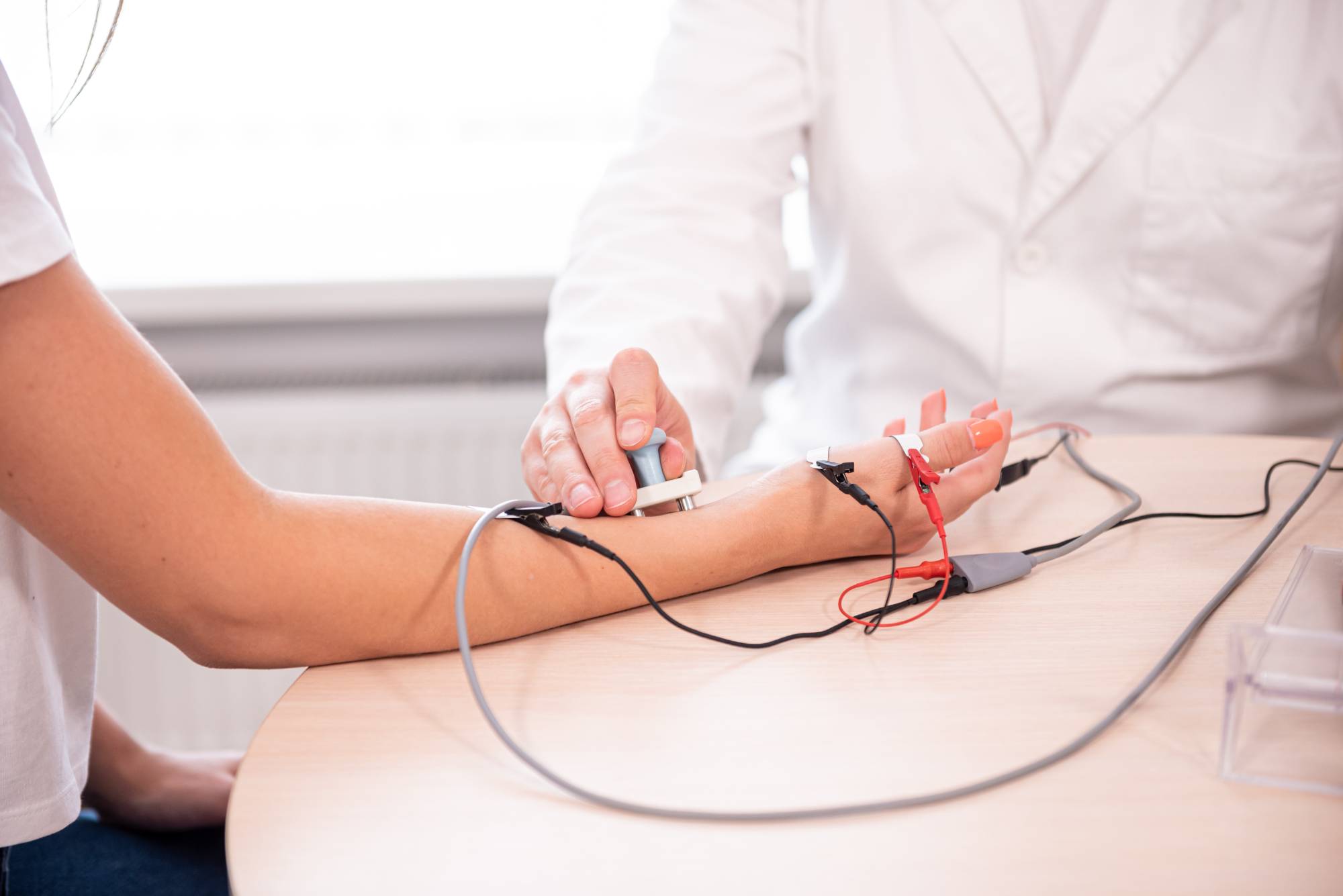
The EMG test happens in two parts, and the whole appointment typically takes 30 to 60 minutes. First comes the nerve conduction study, where small electrical pulses test how well your nerves send signals. You’ll feel brief, mild shocks – not painful, but noticeable.
Next is the electromyography portion, where thin needle electrodes measure muscle activity. The needles are much smaller than those used for blood draws, and most people find this part more comfortable than they expected.
During both parts, you’ll see your results in real time on the monitor. We explain what’s happening as the test progresses, so you’re never left wondering what those squiggly lines and sounds mean. By the end of your appointment, you’ll have a clear understanding of your diagnosis and what comes next.
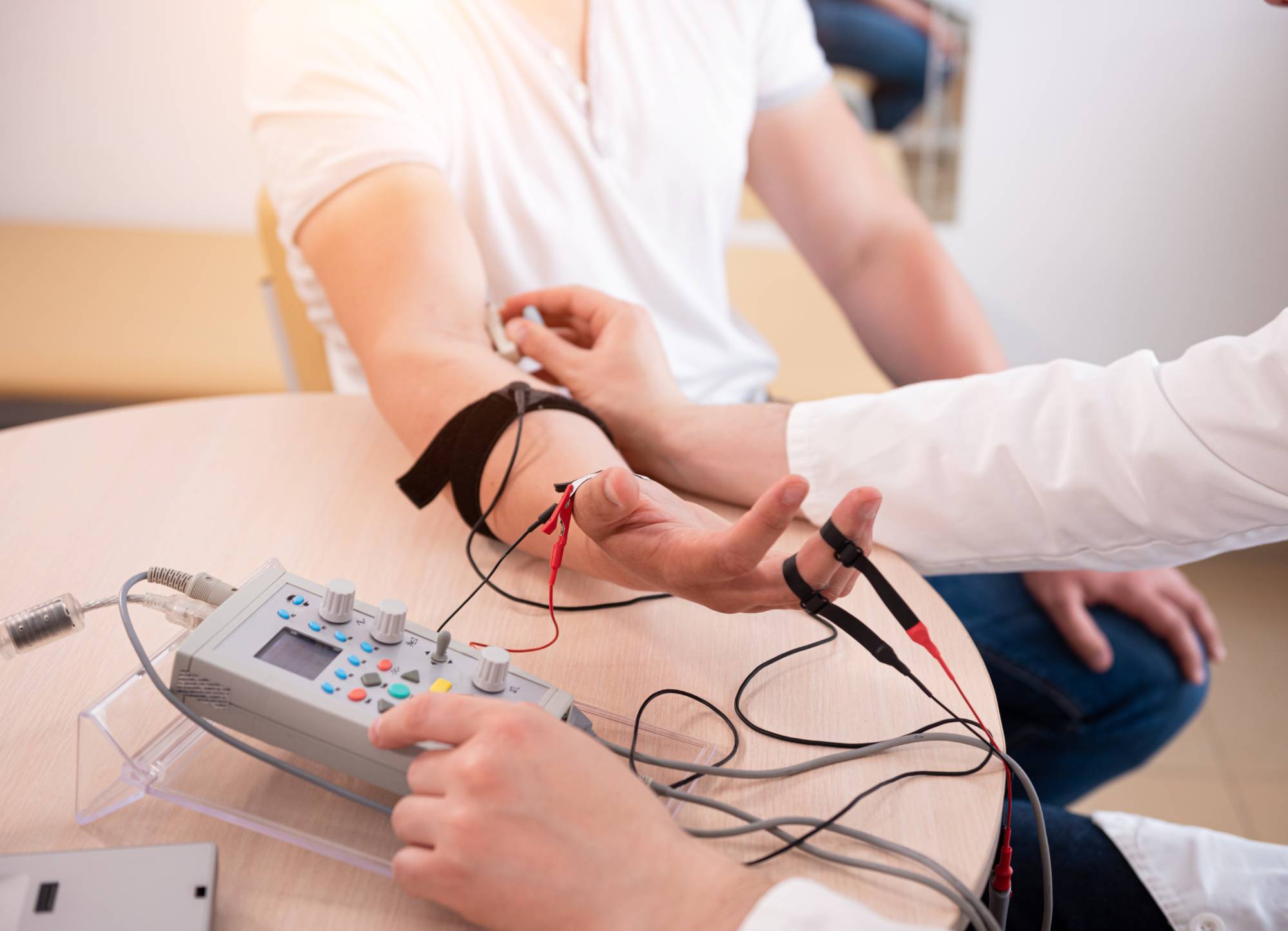
Ready to get started?
Your EMG testing includes both nerve conduction studies and needle electromyography, giving a complete picture of your nerve and muscle function. The evaluation can diagnose conditions like carpal tunnel syndrome, sciatica, diabetic neuropathy, pinched nerves, and various muscle disorders.
You’ll receive detailed results the same day, along with a clear explanation of what the findings mean for your symptoms. We’ll discuss treatment options and coordinate with your referring physician to ensure you get appropriate follow-up care.
Most patients find the testing much more comfortable than they anticipated. The entire process is outpatient, so you can drive yourself home afterward and return to normal activities immediately. No special preparation is needed, though you should avoid using lotions or oils on your skin the day of testing.
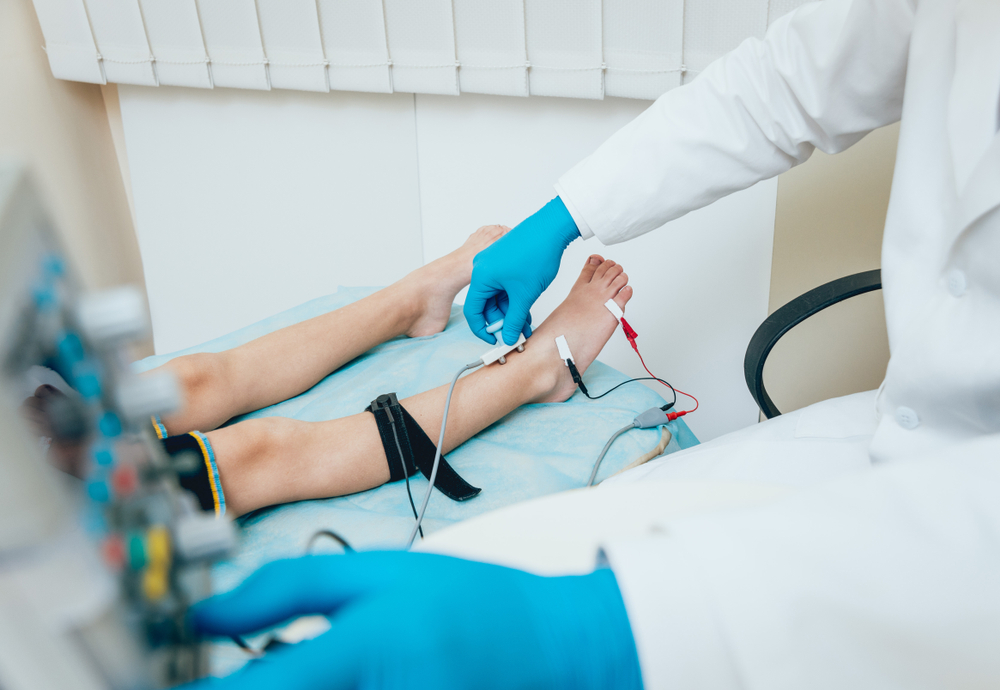
New York:
Florida:
Support